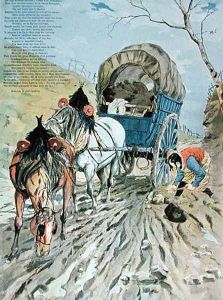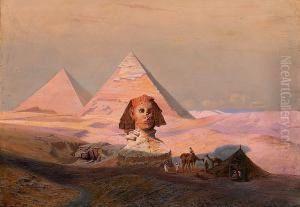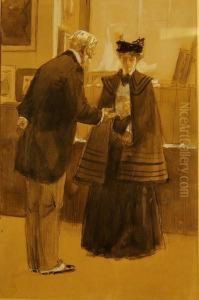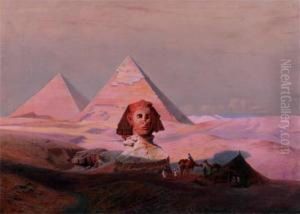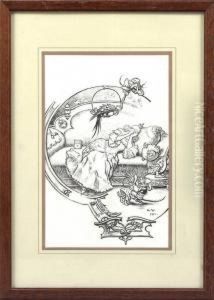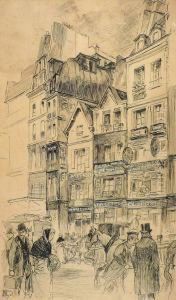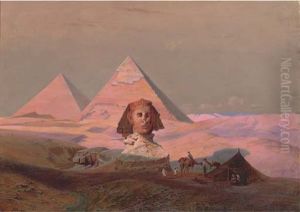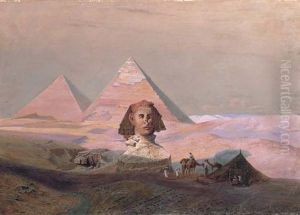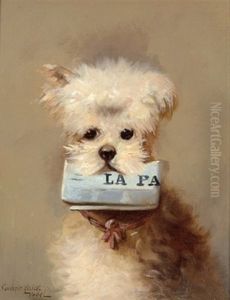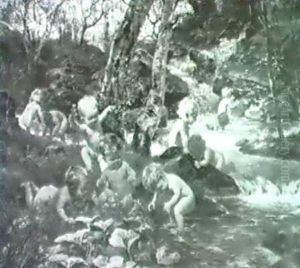Hermann Vogel Paintings
Hermann Vogel was a German illustrator and painter, born on March 15, 1854, in Plauen, Kingdom of Saxony (now Germany). He is known for his detailed and expressive illustrations that captured the essence of 19th-century life, as well as for his contributions to children's literature and satirical magazines. Vogel's artistic journey began at an early age, showing a keen interest in drawing and painting. He pursued his passion for art by studying at the Academy of Fine Arts in Dresden and later at the Academy of Fine Arts Munich, where he was influenced by the works of contemporary illustrators and painters.
Vogel's career took a significant turn when he moved to Paris in the late 1870s. There, he became immersed in the vibrant art scene, contributing to various publications including the famous satirical magazine 'Le Charivari'. His work in Paris helped him to develop a distinctive style characterized by a keen observation of everyday life, a subtle humor, and a delicate use of line and color. Vogel's illustrations often depicted scenes of Parisian society, rural life in France, and the humorous aspects of human nature.
Throughout his career, Hermann Vogel also illustrated numerous books, particularly children's books, where his imaginative and whimsical illustrations brought stories to life. He had a talent for capturing the innocence and wonder of childhood, making his illustrations beloved by both children and adults. Among his notable works are illustrations for the German editions of Charles Dickens' novels and the fairy tales of the Brothers Grimm.
Despite his success in France, Vogel remained connected to his German roots and frequently contributed to German magazines and publications. His illustrations are notable for their historical accuracy and attention to detail, reflecting his interest in history and culture. Vogel's work received acclaim during his lifetime, and he was celebrated for his contribution to the field of illustration.
Hermann Vogel died on July 28, 1921, in Munich, Germany. Today, his work is remembered for its artistic quality and its reflection of European society in the late 19th and early 20th centuries. Vogel's illustrations continue to be admired for their charm, wit, and ability to capture the human spirit, securing his place in the annals of art history.
